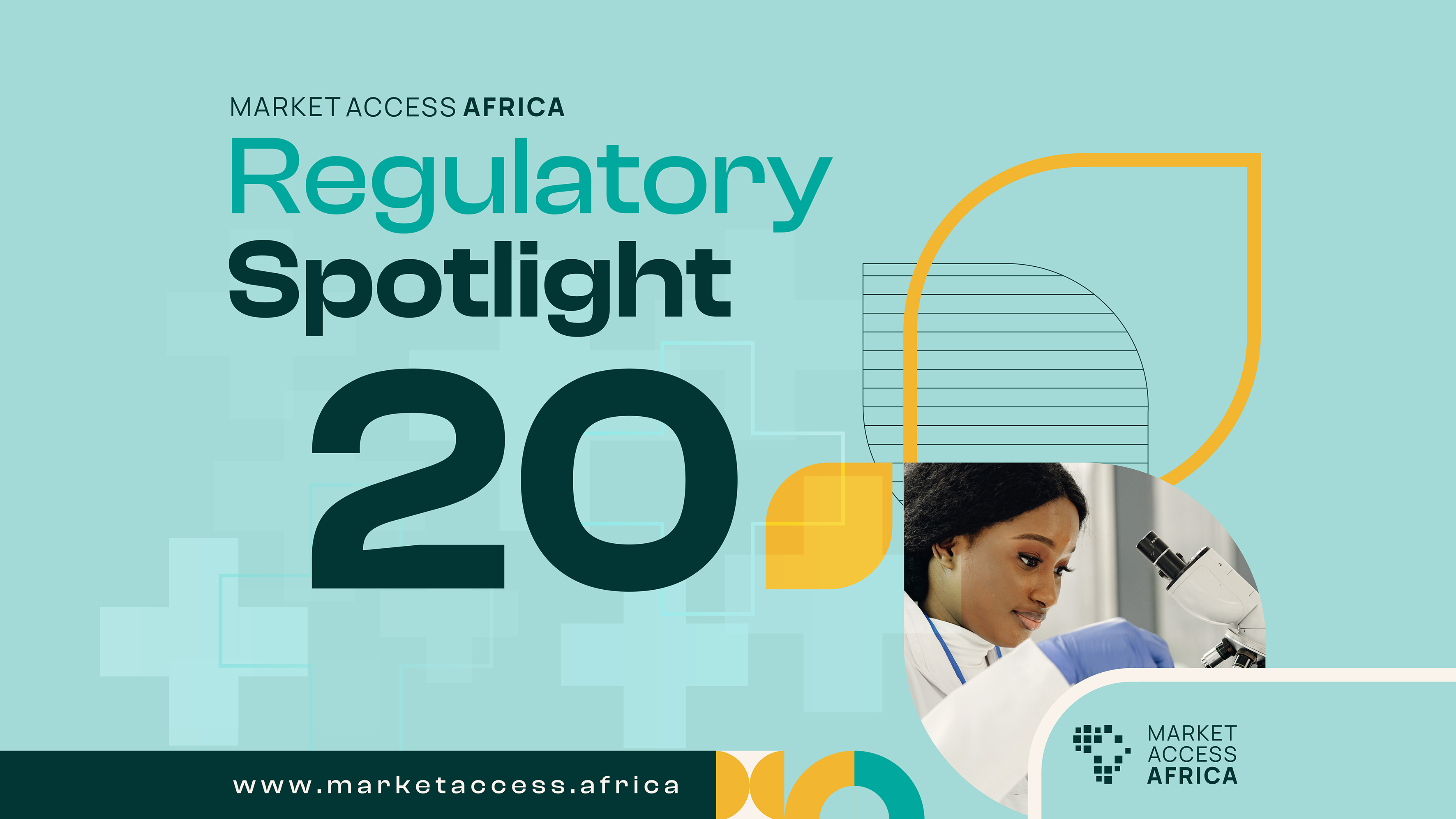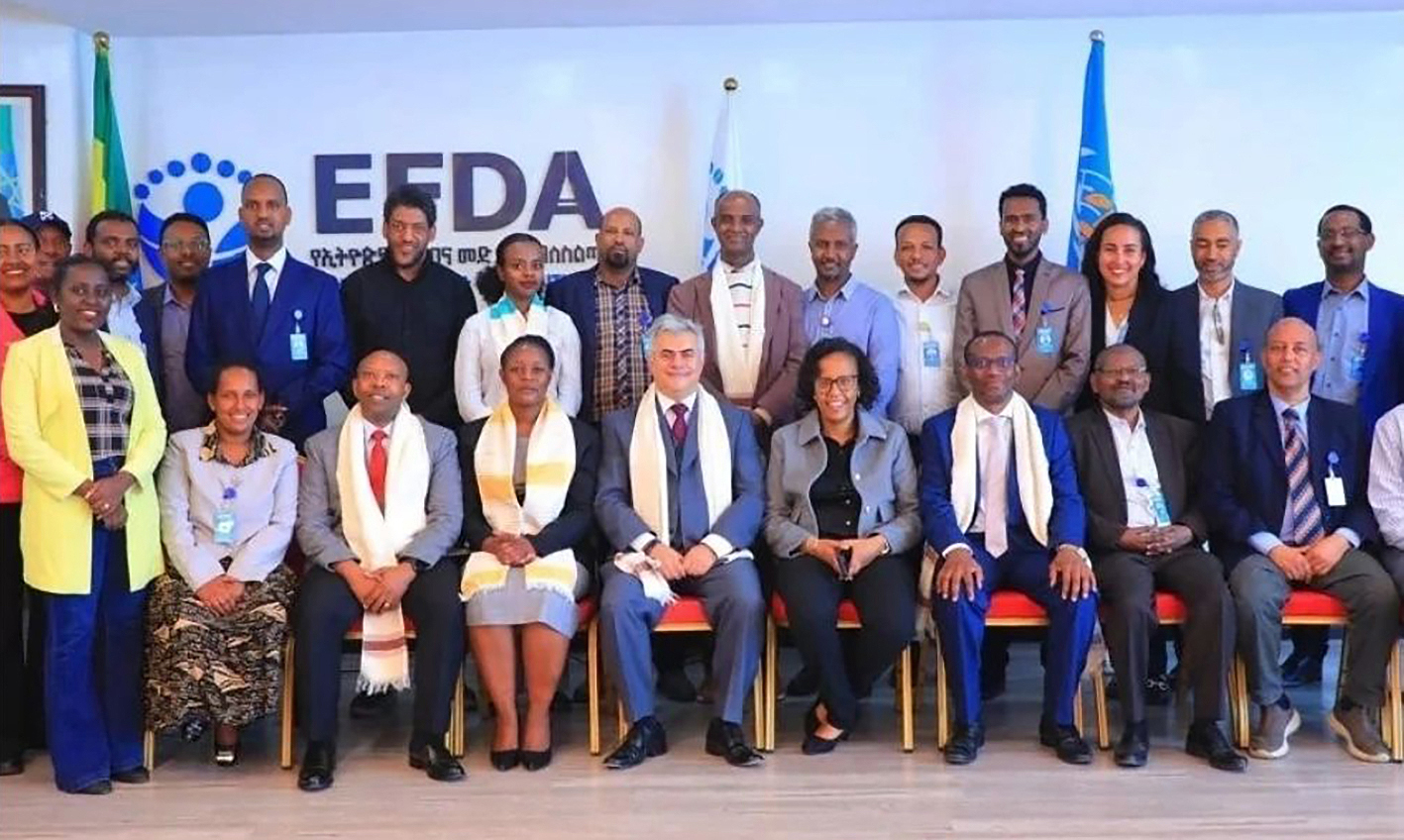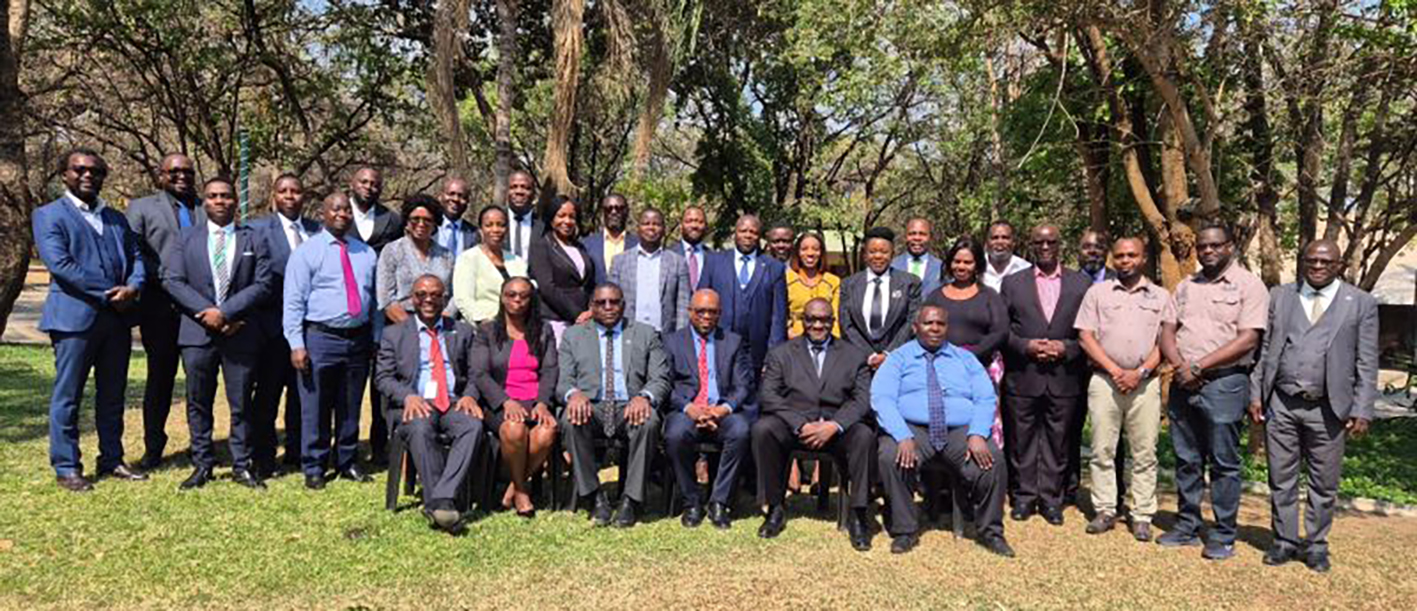
Showcasing the latest developments, news and updates from African national medicines regulatory authorities.
This edition of the Market Access Africa Regulatory Spotlight provides a comprehensive overview of recent developments in medicines regulation across the continent, reflecting progress in harmonisation, transparency, and regulatory capacity-building.
Dr. Delese Mimi Darko assumed office as Director-General of the African Medicines Agency (AMA), marking a pivotal moment in continental efforts to strengthen regulatory oversight, reduce the circulation of substandard and falsified medical products, and advance the African Union’s vision for health sovereignty. Ethiopia’s recognition by the World Health Organization (WHO) as a Maturity Level 3 (ML3) regulatory authority further underscores the continent’s growing capability to ensure that medicines and vaccines meet international standards of quality, safety, and efficacy. Ethiopia is now the first country within the IGAD region to reach ML3.
Southern Africa has seen a series of initiatives to reinforce supply chain integrity and regulatory oversight. The South African Health Products Regulatory Authority (SAHPRA) introduced a guideline on traceability of health products, promoting unique product identification and barcoding to enhance transparency and efficiency across the pharmaceutical supply chain. In Zimbabwe, the Medicines Control Authority (MCAZ) published its 2025 GMP Inspection Metrics, providing a data-driven perspective on compliance trends and risk-based oversight to improve manufacturing practices and regulatory transparency. In Zambia, ZAMRA has commenced stakeholder consultations on the draft Medicines and Allied Substances Bill, 2025 which seeks to align national legislation with the African Union Model Law on Medical Products Regulation and strengthen the country’s path toward WHO Maturity Level 3 status.
In North Africa, Algeria has strengthened its clinical research framework through the issuance of the Guideline for the Conduct of Clinical Studies, setting out clear standards for study authorisation, principal investigator and CRO accreditation, operational and safety requirements, and communication channels to enhance transparency and regulatory efficiency.
Taken together, these updates reflect a broad and sustained effort across the continent to improve regulatory systems, promote public health, and enhance access to quality-assured medical products.

Ethiopia has been formally recognised by the World Health Organization (WHO) for achieving Maturity Level 3, placing it among nine African countries to attain this status under WHO’s global classification of national regulatory authorities. The benchmarking process was completed in September 2025, supported by the WHO Regional Office for Africa and the WHO Country Office in Addis Ababa.
This achievement underscores the Ethiopian Food and Drug Authority’s (EFDA) commitment to ensuring that medicines and imported vaccines meet international standards of quality, safety and efficacy. The designation follows a comprehensive WHO assessment conducted using the Global Benchmarking Tool, which evaluates national regulatory systems against more than 250 indicators.
Maturity Level 3 is defined by WHO as a stable, well-functioning and integrated regulatory system. Countries at this level are recognised for their capacity to authorise medical products, conduct market surveillance, and monitor safety events effectively.
Ethiopia now joins Egypt, Ghana, Nigeria, South Africa, Tanzania, Zimbabwe, Senegal, and Rwanda in reaching ML3 status on the continent. It is also the first country within the Intergovernmental Authority on Development (IGAD) region to achieve this milestone. The accomplishment is expected to further augment harmonisation efforts and strengthen the regulatory systems of other countries in the region.
The Ministry of Pharmaceutical Industry of Algeria has issued the Guideline for the Conduct of Clinical Studies (Version 01), effective 11 October 2025. The guideline establishes the regulatory foundation for clinical research in Algeria, defining clear procedures for study authorisation, investigator and contract research organisation (CRO) accreditation, monitoring, safety reporting, and inter-agency coordination. It applies to all clinical studies conducted in Algeria, including observational, interventional, bioequivalence, pharmacogenomic, diagnostic, and epidemiological studies, and aligns with international Good Clinical Practice (GCP) standards.
Key provisions of the guideline outline the respective roles and responsibilities of sponsors, principal investigators, and regulatory bodies, as well as timelines for study authorisation, amendments, and reporting. It also defines operational and safety requirements such as adherence to Good Manufacturing Practices (GMP), insurance coverage for participants and investigators, and long-term documentation retention.
The document further details criteria for the accreditation of CROs and Bioequivalence Centres (CBEs), including staffing qualifications, infrastructure standards, and quality management systems.
To enhance transparency and efficiency, the Ministry has introduced a dedicated communication channel via sdec@miph.gov.dz and is developing a one-stop submission portal to streamline interactions with regulatory authorities.

The Zambia Medicines Regulatory Authority (ZAMRA) has commenced stakeholder engagements on the draft Medicines and Allied Substances Bill, 2025.
The proposed provisions in the Bill seek to align the Medicines and Allied Substances Act, No. 3 of 2013 with the African Union (AU) Model Law on Medical Products Regulation, which was endorsed by African Heads of State and Government at the AU Summit held in January 2016 in Addis Ababa, Ethiopia.
The AU Model Law is designed to assist African countries in addressing gaps and inconsistencies in regulatory legislation. The AU Model Law also provides a framework for national regulatory authorities, such as ZAMRA to regulate medicines and allied substances while also addressing issues relating to prohibition of substandard and falsified medicines and allied substances.
Speaking at the stakeholder meeting, ZAMRA Director-General Mr. Makomani Siyanga emphasised the importance of repealing and replacing the current Act to reflect modern regulatory practices. He noted that once enacted, the proposed Bill would strengthen the legislative framework and support ZAMRA’s goal of attaining World Health Organization (WHO) Maturity Level 3 status.
The stakeholder engagement took place at M’kango Cresta Golfview Hotel in Lusaka from 9 - 10 October 2025 and continued Wednesday 15 October 2025.
The Medicines Control Authority of Zimbabwe (MCAZ) has published its Good Manufacturing Practice (GMP) Inspection Metrics Report for the period February to August 2025. The report provides a data-driven overview of compliance trends among inspected pharmaceutical manufacturers and reinforces MCAZ’s commitment to Good Regulatory Practices (GRP) and transparency.
Publication of the report aligns with the principles of the World Health Organization (WHO) Global Benchmarking Tool (GBT) under the Regulatory Inspection (RI) function, particularly Indicator RI06, which promotes accountability, transparency, and effective communication by national regulatory authorities.
Between February and August 2025, MCAZ conducted 47 GMP inspections comprising 29 pre-authorisation inspections, 18 routine inspections, and 4 desk reviews under reliance mechanisms. The overall compliance rate at the time of final inspection reports was 89%. A total of 682 findings were recorded, including 7 critical (1%), 496 major (73%), and 175 minor (26%) observations.
The full report, containing the metrics, key system-level observations, capacity building, and risk-based oversight details, is available here.
On 27 October 2025, the South African Health Products Regulatory Authority (SAHPRA) announced the registration of Lenacapavir. Lenacapavir is an antiviral medicine that is recommended, in combination with safer sex practices, for pre-exposure prophylaxis (PrEP) to prevent HIV-1 infection in adults and adolescents weighing at least 35 kg.
An application by Gilead was submitted to SAHPRA in March 2025. The SAHPRA review process was done in collaboration with the European Medicines for All Procedure (EU-M4all). This procedure enables the European Medicines Agency (EMA), together with the participating regulatory authorities, to provide scientific opinions on high-priority medicines, such as Lenacapavir, intended for markets outside the European Union. The benefits of this pathway are to strengthen regulatory systems and accelerate access to essential medicines.
This product, developed to prevent new HIV infections, is a six-monthly injection. There is an initiation dose of a subcutaneous injection (administered just under the skin) with tablets (taken on days 1 and 2). It is used to reduce the risk of HIV in adults and adolescents who weigh at least 35 kg, are HIV negative, and are at risk of getting HIV. Lenacapavir for PrEP should always be used in combination with safer sex practices, such as using condoms, to reduce the risk of getting other sexually transmitted infections.
The press release can be accessed here.
The South African Health Products Regulatory Authority (SAHPRA) has issued a guideline on the traceability of health products, outlining measures to strengthen the integrity and transparency of the supply chain. The aim is to ensure that all health products (orthodox medicines, biological products, complementary medicines, and veterinary medicines) can be accurately tracked and traced from manufacture to the point of dispensing or consumption.
The guideline introduces the implementation of a unique product identification and medicine monitoring system for all medicines used in South Africa. This will be achieved through the adoption of ISO/IEC 15416:2016 and ISO/IEC 15415:2011 standards, which define the methodology for measuring specific attributes of bar code/ GS1 Data Matrix symbols together with GS1 standards for product identification, data capture, and data exchange.
The system aims to enhance transparency and efficiency across the medical products supply chain, benefiting stakeholders such as manufacturers, wholesalers, distributors, health care providers, insurers, and patients. Furthermore, it is expected to promote standardisation and strengthen the international competitiveness of local manufacturers.
Implementation will be phased, beginning with batch-level identification and progressively advancing towards unit-level serialisation across primary, secondary, and tertiary packaging. The SAHPRA Guideline on Traceability of Health Products and its accompanying implementation roadmap are available online.

Dr. Delese Mimi Darko has officially assumed office as the Director-General of the African Medicines Agency (AMA) in Kigali, Republic of Rwanda, on Monday 13 October 2025.
The onboarding process was completed with the full cooperation of the host government and the continued support of the African Union Commission, led by Her Excellency Ambassador Amma Adomaa Twum-Amoah.
As Director-General, Dr. Darko will oversee AMA’s operations in alignment with its mandate to enhance regulatory harmonisation and strengthen access to quality-assured, safe and efficacious medical products across the African continent. Her assumption of office marks a key milestone in advancing the African Union’s broader vision for health sovereignty and pharmaceutical development in Africa.
Through collaboration with national and regional regulatory authorities, AMA aims to strengthen oversight of the pharmaceutical sector and ensure that only quality-assured medical products are available to patients throughout the continent.


